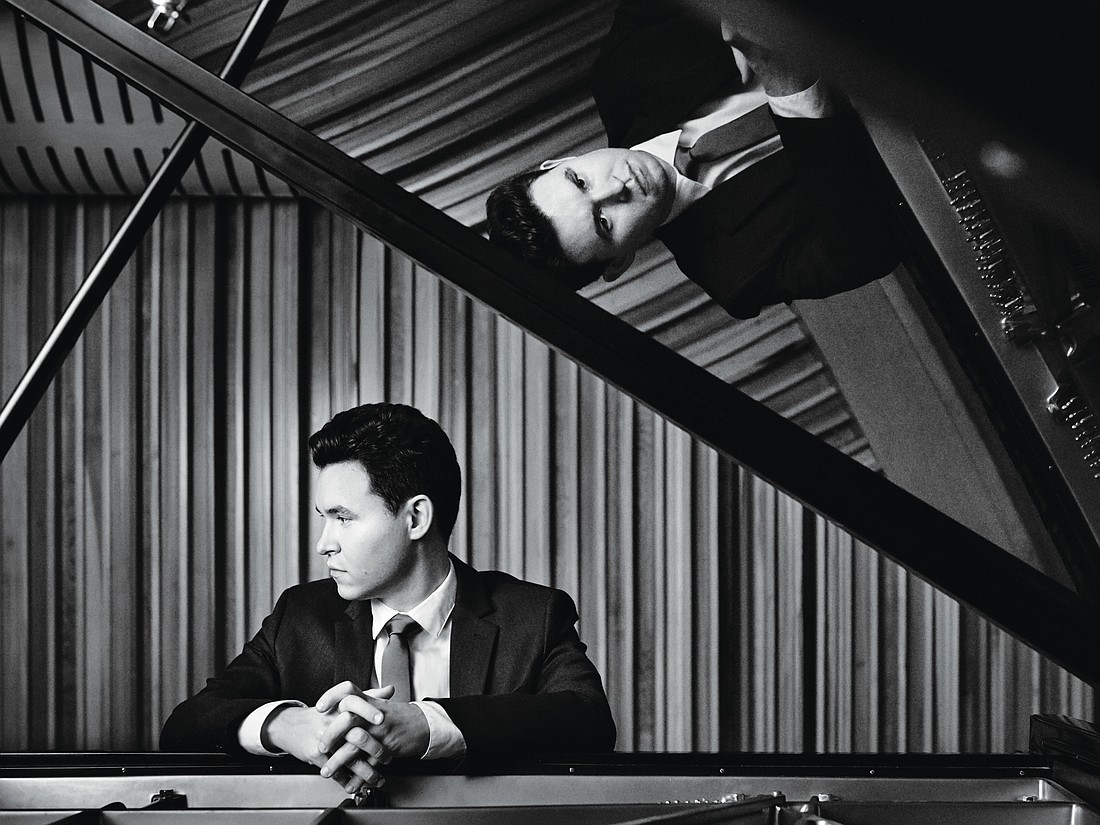- July 26, 2024
-
-
Loading

Loading

Pianist Matthew Graybil and violinist Rhiannon Banerdt are old souls.
“We’re cool and hip, so instead of going out at night we listen to recordings and talk about what we like and don’t like,” Banerdt says of how they’ve prepared for their upcoming Sarasota performances.
The pair are two young music artists working with The Chopin Project, an initiative started 10 years ago by founder Fred Slutsky to make the music of Chopin and other classical composers more accessible.
One way he does this is by organizing concerts with some of the world’s best emerging musicians so new audiences can hear masters’ compositions live.
One such artist is Graybil, who has performed as a recitalist, concerto soloist and chamber musician throughout North America and Europe. His last local performance was in April with The Chopin Project, and now he’s making his return with internationally acclaimed violinist Banerdt, who played with him through the project in October 2017.
Banerdt is the assistant concertmaster with the Cape Symphony, on the violin faculty at Bloomingdale School of Music and a violinist for the Ulysses String Quartet in New York City.
Together, they represent a small but mighty group of emerging musicians who are eager to keep classical music relevant — particularly to young ears.
“Music represents who someone is, and that’s sort of the central question for a young person exploring different aspects of their identity,” Banerdt says. “Music is about personal expression, and that’s something we all share.”
Graybil agrees, adding that The Chopin Project places great emphasis on community outreach in an effort to engage young listeners with classical of music.
“We’re going into schools and finding ways to present it to show how it’s timeless and accessible to them,” he says. “I think with this program we have to have some element of accessibility to make it appeal to audiences of all ages and all levels of understanding.”
One way they’ll achieve this is by inviting a young musician to join Graybil in a piano duet in the pair’s special Nov. 9 performance, free to students, at Braden River High School.
The pianist is Braden River student Gabriel McDerment, and he’ll join Graybil in a duet performance of a new Chopin Project arrangement of Chopin’s Étude Opus 10, No. 3 rendered as a duet.
“I think this program in particular is really exciting and fun for young people because it’s partially about variety, so by its nature there’s something for everyone, and you can hear the breadth of different styles and possibilities,” Banerdt says.
The program will feature duo works by Chopin, Dvorak, Ravel, de Falla and Saint-Saëns with the theme of musical nationalism and exoticism.
Graybil is quick to point out, however, that listeners shouldn’t confuse musical nationalism with the definition of nationalism heard in the news lately. It was common for composers from small countries in Europe to yearn for a collective identity in the 19th century, he says, and to do so they used various devices borrowed from folk music and integrated them into art music to show pride for their heritage.
“It’s interesting to retrace the composers’ steps and see how they developed the style they have,” Graybil says. “And to see what was going on in their life and their country at that time and how that influenced them.”
Now we can easily look up foreign music on YouTube, he says, but music was harder to share then. Even when small tidbits were brought back from faraway lands, it excited listeners.
Graybil and Banerdt want to provide a similar excitement.
“My favorite thing after a concert is someone coming up to me and saying they never knew about this piece or composer and thanking me for introducing it to them ... or (for offering) a new perspective on something they were already familiar with,” Banerdt says.
Correction: The print version of this story stated the incorrect time of the Nov. 11 concert. The error has been corrected online.